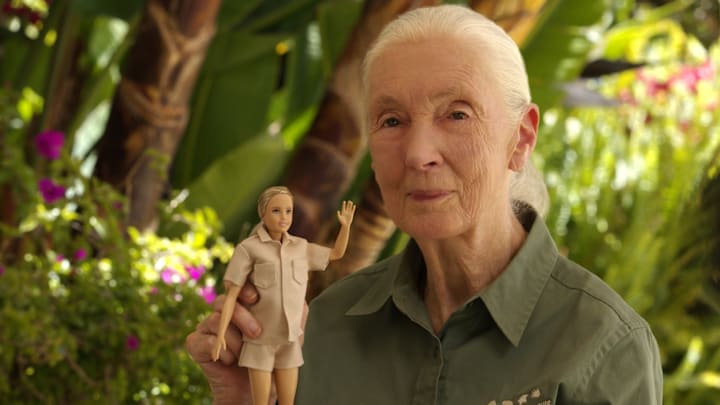In 1960, 26-year-old Jane Goodall ventured into the lush greenery of Tanzania’s Gombe Stream National Park and started observing the region’s chimpanzees. Over the last six decades, she’s not only distinguished herself as one of the world’s premier primatologists—but also one of our most important conservationists. In 1977, she established the Jane Goodall Institute to help protect the chimps’ habitat, advocate for sustainable living, and foster the next generation of environmental activists.
Now, as CNN reports, Mattel is honoring all that work by making Goodall the latest Barbie in its Inspiring Women series. The doll itself emulates its source material in more ways than one. She’s dressed in a practical khaki shirt-and-shorts set and toting a blue notebook, where she’ll surely jot down any intriguing behavior she witnesses through the binoculars slung around her neck.

Barbie Jane even has a companion: David Greybeard, the Gombe chimp with whom Goodall first bonded, paving the way for a closer look at his community at large. Bill Wallauer, a Jane Goodall Institute scientific advisor and wildlife photographer, helped Barbie designer Carlyle Nuera get David’s details just right.
“Jane observed that the chimps created and used tools, stripping leaves off of branches to stick into termite nests and catch termites to eat, so that’s why the David Greybeard figure comes with a stick,” Nuera told Mattel Creations.

In keeping with Goodall’s commitment to environmentalism, 90 percent of the doll is manufactured from recycled plastic sourced near “waterways in areas lacking formal waste collection systems.” (In layperson’s terms, there’s a good chance the plastic would’ve otherwise ended up in the ocean.)
“My entire career, I’ve wanted to help inspire kids to be curious and explore the world around them—just like I did when I first traveled to Tanzania 62 years ago,” Goodall said in a Mattel press release. “I’m thrilled to partner with Barbie and encourage young children to learn from their environment and feel a sense that they can make a difference.”
The Barbie doll is available for $35 from Mattel’s website and Walmart.
[h/t CNN]
